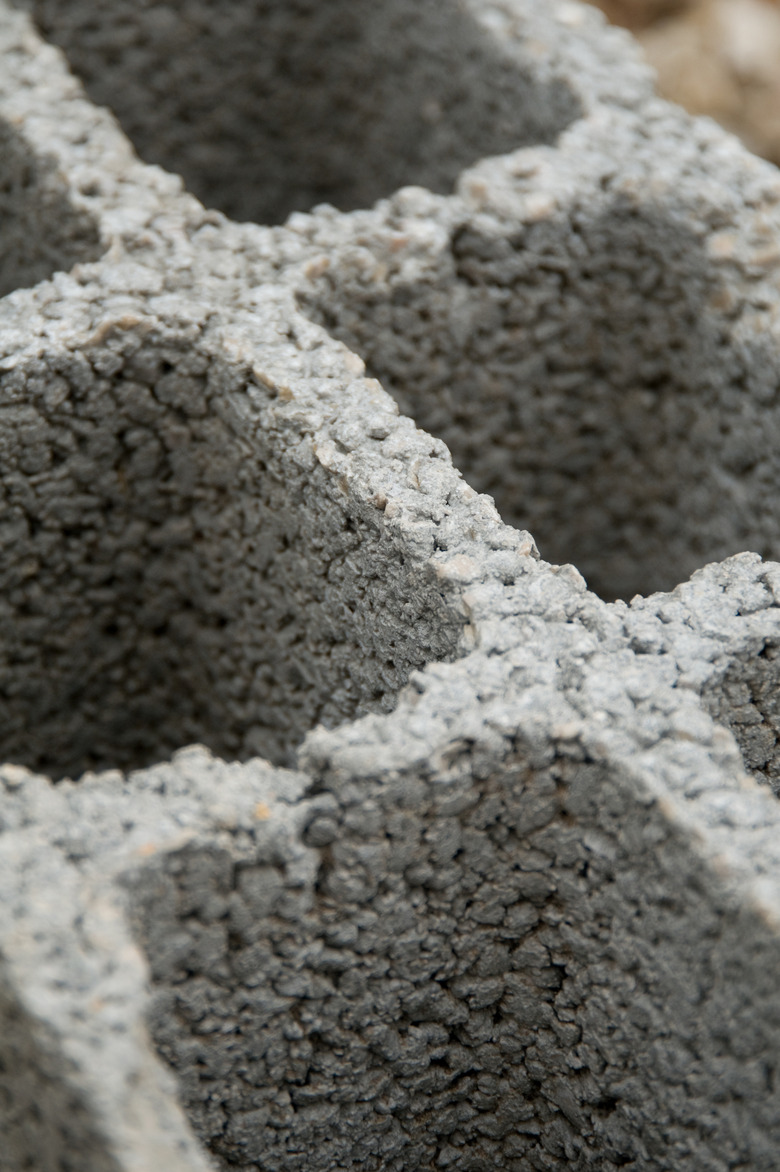What Are The Dimensions Of A Cinder Block?
We may receive a commission on purchases made from links.
Concrete blocks and cinder blocks are very close relatives. Both are made of cement, sand and aggregate. The difference is that the aggregate in a concrete block is fine gravel; in a cinder block it is coal cinders. Cinder blocks once were very popular and common, but have largely been replaced by concrete blocks in most applications, in part because coal cinders are not as readily available as they once were.
8-by-8 Blocks
8-by-8 Blocks
The most common dimensions for a cinder block are approximately 8-by-8-by-16 inches. The actual measurements, however, are 7 5/8-by-7 5/8-by-15 5/8. The difference is to accommodate a mortar joint between blocks, typically 3/8-inch thick, so when the blocks are laid, the finished dimensions will be multiples of 8 inches.
Hollow Cores
Hollow Cores
Cinder blocks are either two-core or three-core, meaning they have either two or three large holes in each block, with a 1-inch divider between holes. They also typically have indented ends, with two outside elements and a 1 1/4-inch depression between.
Special Blocks
Special Blocks
Special blocks in the standard 8-8-16 format have smooth faces on one end, to serve as end blocks at corners and doorways. Other special styles have offsets to allow for door jambs or headers or window sash installation. These also usually follow the 8-8-16 format.
Solid Blocks
Solid Blocks
Some blocks are solid, in 4-inch thicknesses rather than 8. These typically are used to cap walls to provide a solid top. Some 8-inch blocks also are made with solid tops, however. Other variations for special purposes are 4-by-4-by-16 or 4-by-6-by-16 inches.
Producers
Producers
Most cinder blocks today are produced by the same companies that produce concrete blocks, using the same molds. Cinder blocks are lighter than concrete blocks and are not rated as strong for bearing loads but may be substituted for concrete blocks in walls, fences and similar applications.
